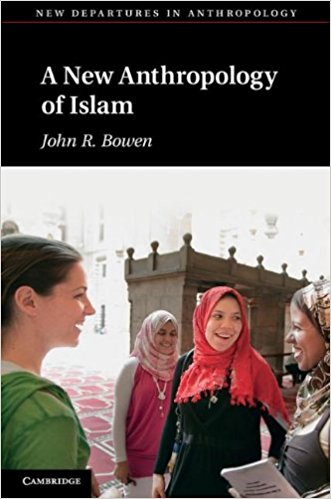John R. Bowen’s A New Anthropology of Islam addresses an ontological problem in sociology and social anthropology, one that pertains to the relationship between culture and tradition. In a lecture that I attended on the subject, the learned professor drew upon the illustration of the adoption of the veil in Islamic societies and how it predated the arrival of Islam in the Arab lands. Religion here, it is assumed, is gratuitously implicated even though the practice had little to do with Islam. Historically speaking, it is axiomatic to suggest that culture predates religion, but the fundamental predicament remains: ways in which cultural practices associated with discrete and geographically disparate groups receive sanctity and assurance in the religious worldview formed by an assortment of texts, practices, rituals and traditions. For example, in recent years, ‘Islamic feminism’ has come to be associated with a brand of scholarship and politics that rescues fundamental Islamic texts such as Quran and the hadiths from patriarchal practices that over the years have come to be associated, purportedly erroneously, with Islam or Muslims.
October 2013, volume 37, No 10

